9 Best Vans For Camper Conversion In 2022

If you have the bug for the “van life” and want to get the most out of your road trips in a campervan, you might want to think about campervan conversion, i.e., how to convert a vehicle into a campervan. Depending on your needs, there may be a better van for a camper conversion.
It can be difficult and overwhelming to decide on the base for your camper van conversion. This practical guide will show you what to look for when choosing your van. In addition, we’ll answer all of your van conversion questions and provide you with the top 9 vans for your conversion!
Pros And Cons Of Doing A Diy Camper Van Conversion
Pros
- Cost – Cost savings are the main benefit of DIY camper van conversion. Compared to a professional conversion, a DIY project will be significantly less expensive; the least expensive DIY conversions can even be completed for under $1,000.
- Creative freedom – Choosing to build yourself gives you complete control. You can be confident that everything is constructed precisely according to your specifications.
Cons
- Added expenses – To convert a camper van, you’ll need a ton of tools, including power tools. Even new tools may be required, which would be an additional cost.
- Know-how – It takes knowledge to construct a van. It might be extremely difficult for you if you have no prior experience in building things.
- Labor and time – Physical labor is necessary for a DIY van to build, and you’ll also need to set aside time in your schedule for it.
You may be interested in How To Get Good Sleep In A Van?
Key Considerations Of A Van For Camper Conversion
Choosing the best van for a camper conversion can be answered by thinking about a few different questions:
- How far will you travel in your van?
- What sort of things do you intend to do while you’re away? how much storage do you need)?
- How many people will be using the van?
- What conditions must be met before renting a camper van?
If you intend to live in your converted van full-time as opposed to using it occasionally for weekends away, you will need a very different van. Compared to a more casual hiker and runner, an activity-obsessed weekend warrior who needs to fit surfboards, road bikes, and climbing gear will require a much larger van. You will require more space if you have a family of three or more people than if there are only one or two of you. The size of the van you need will also depend on whether you want to include amenities like a shower, toilet, and spacious seating area.
You should be able to determine the size of van you should choose for your van conversion by considering these influencing factors. Picking a van will only be necessary once you have determined the size you require. In the list below, we highlight some of the top vans for each size camper van conversion you might be considering.
Best Vans For Camper Conversion
Ford Transit
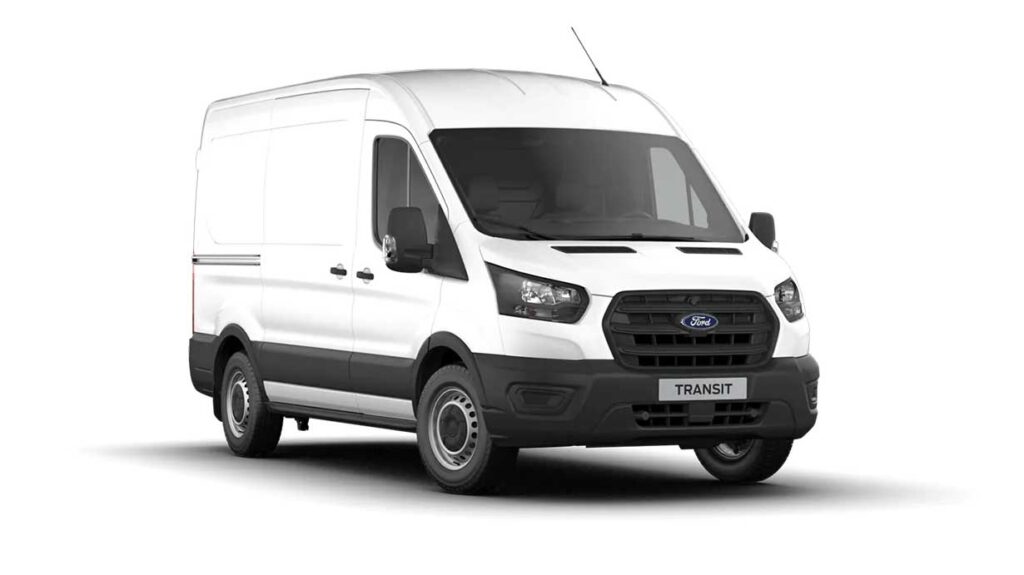
For camper van conversions, the Ford Transit is a very popular cargo van, and for good reason. On top of being very trustworthy, they also have the best fuel efficiency of their rivals.
The Ford Transit is available in three lengths—regular, long, and extended—and three roof heights—low, medium, and high. It can also be driven with either an all-wheel drive or a rear-wheel drive system. The Ford Transit is one of the best vans for camper van conversion because of its adaptability, dependability, and efficiency.
There are a lot of people who live in vans, so it makes sense.
Mercedes-benz Sprinter
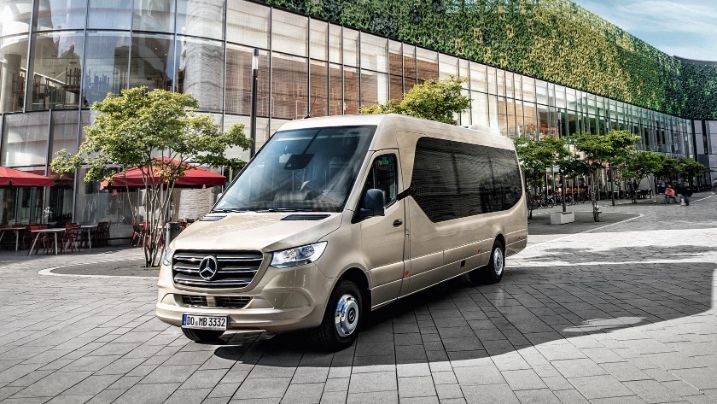
One of the most well-liked models for a conversion van camper is the Mercedes-Benz Sprinter, and it’s understandable why. These vans are of the high caliber and superior engineering you would expect from a luxury manufacturer like Mercedes-Benz.
The Sprinter comes in three lengths (144″ wheelbase, 170″ wheelbase, and 17″ extended wheelbase) and two roof heights (standard and high). The Sprinter has rear-wheel drive by default but is also available with a “4×4” drivetrain. This can be engaged and disengaged as needed and is essentially all-wheel drive.
The Sprinter’s high quality has made it so popular that “Sprinter van” is often used as a catch-all term for any cargo van. For your camper van conversion, you’ll be in good company if you choose a Sprinter!
Ram Promaster
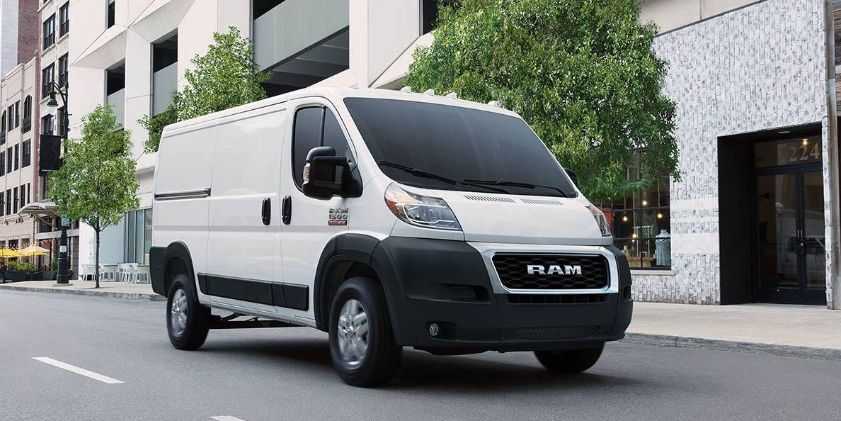
The RAM Promaster is still a fantastic choice, even though van conversion discussions don’t tend to focus on it as much. Additionally, it has a few distinctive features that make it stand out from other cargo vans.
One of the reasons is that the RAM Promaster has the widest body among the common cargo vans, giving you more room for your build. Furthermore, that build may be simplified by the flat-sided walls. Additionally, it differs from other popular vans in that it has front-wheel drive instead of rear-wheel drive.
RAM Promaster also comes in four different lengths (8′ cargo length/118″ wheelbase, 10′ cargo length/136″ wheelbase, 12′ cargo length/159″ wheelbase, and 13′ cargo length/159″ extended wheelbase) with two roof heights (standard and high).
Nissan NV
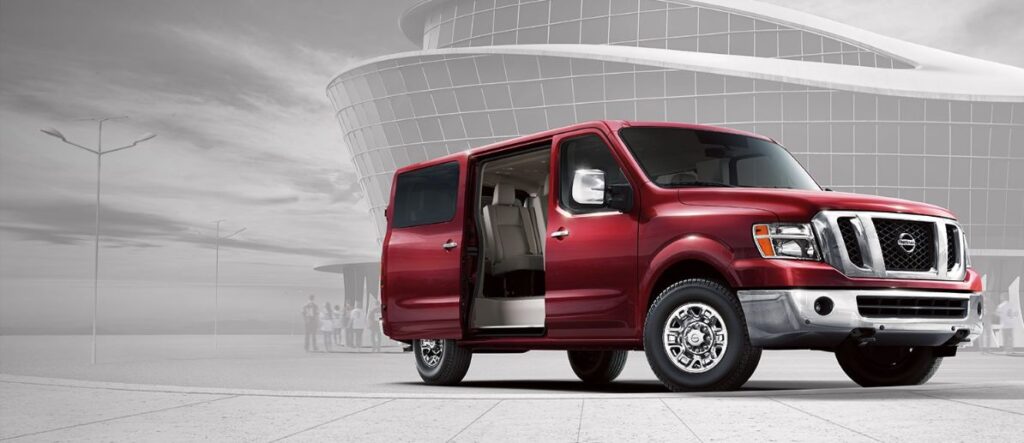
A quirky-looking little cargo van with average sales, the Nissan NV. After 2021, it actually won’t be available anymore. For a camper van conversion, it may still be a good option despite that.
The Nissan NV stands out from the crowd, but its unusual appearance can also help it perform a little bit better when used for stealth camping. It’s less likely to be identified as a camper van because conversions of this kind are uncommon. Nissan is known for its dependability and high-quality manufacturing, just like the majority of Japanese automakers.
Ford E Series
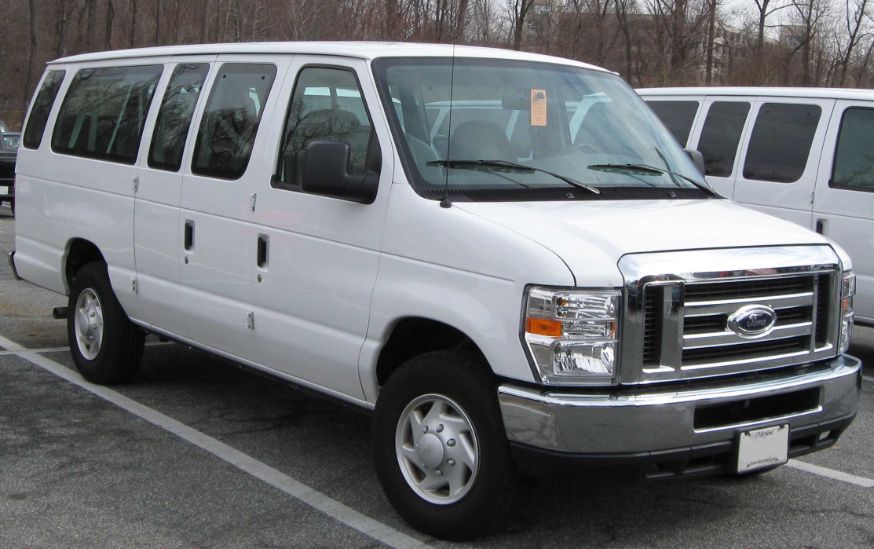
After going over the contemporary choices, it’s time to move on to a classic. Ford Econoline, which was formerly known as the Ford E series, served as the forerunner to the current Ford Transit. It has many of the same benefits as a brand-new Ford van, but because they are older, you can get them for a fraction of the price.
From the 1960s to 2014, Ford produced E series cargo vans; as a result, a variety of models, including some that are relatively recent, can be found for sale.
Renault Master
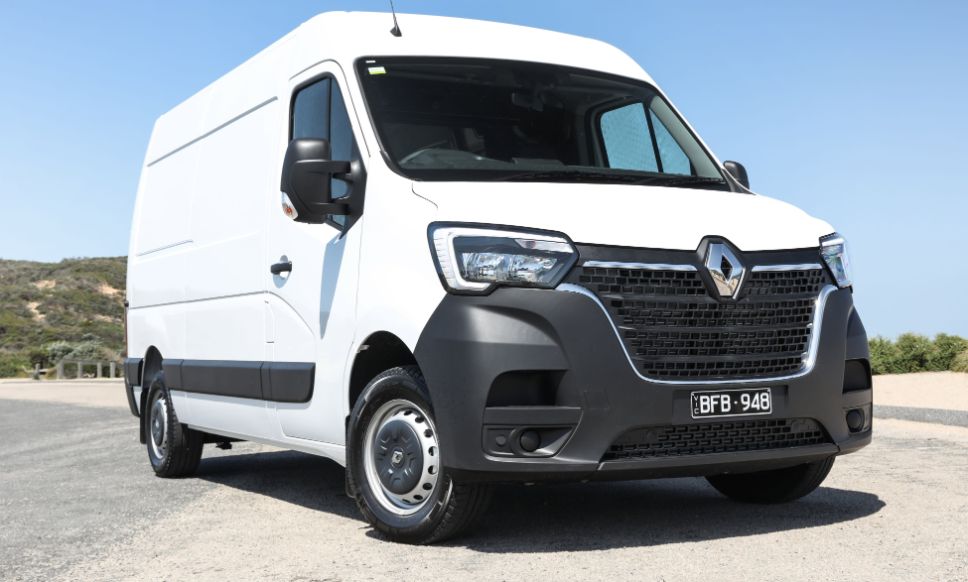
Another popular option is Renault, which is what manufacturers of campervan conversions use. The top competitors for campervan sales are those 5 vans.
The Mercedes-Benz Sprinter, Fiat Ducato, Ford Transit, and Renault Master are all compared in detail in a great article by caradvice.com.au for those who are interested in the technical and performance specifications.
LDV Deliver 9
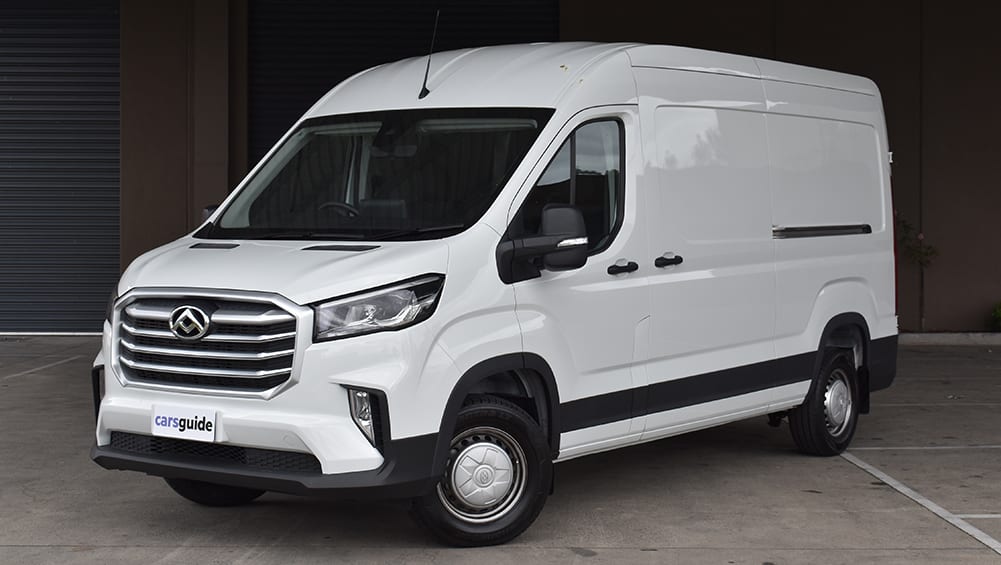
Do you recall ever hearing of this? I have not (although that is not really saying much). But as I look into this brand, I discover that LDV is a part of SAIC, the biggest automaker in China. SAIC is called Shanghai Automobile and Industrial Corporation. Previously, they were Leyland DAF, a British van manufacturer. This article may help you decide if it would be a good fit for you since it is new on the market.
Chevy Express/GMC Savana
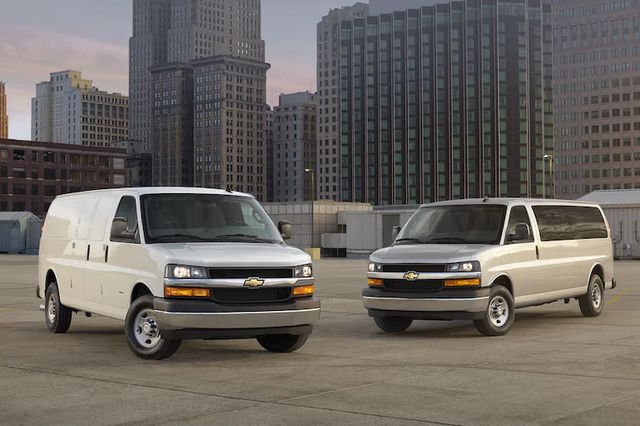
The Chevy Express, which is also marketed as a GMC Savana, is an additional option for vintage cargo vans. Chevy still makes these, but older Chevy models are more frequently used for camper van conversions. As with any older van model, cost savings will be the main benefit. An older van can also be a little easier to fix than most older cars.
Compact Cargo Vans
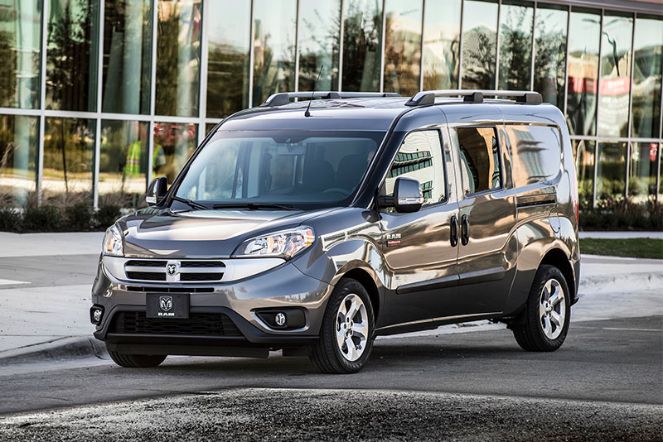
Every major model of cargo van also has a “sister” model which is smaller and more compact:
- The Ford Transit Connect for the Ford Transit
- The Mercedes Metris for the Mercedes Sprinter
- The RAM Promaster City for the RAM Promaster
These small cargo vans are nearly identical to their larger sibling but smaller in almost all dimensions. Additionally, they cost a little less than bigger models. They are a little too small for the majority of camper van conversions, but for those who don’t mind having less space, they are perfect for an ultra-compact camper.
The Cost Of Camper Van Conversion
Let’s talk about money first, before anything else. A van conversion can be broken down into two major costs: the cost of purchasing the van to be converted and the cost of actually converting it.
The Price Of The Van
Cargo vans like the Ford Transit are among the most popular vans to be converted. These large vehicles have roomy interiors and are frequently empty aside from the front seating, making conversion simple.
Depending on the make and model, a new cargo van will typically cost between $25,000 and $40,000. Used cargo vans will cost less, frequently in the $15,000–$20,000 range or less. Sometimes, older cargo van models can even be found for less than $10,000.
The Price Of The Conversion
You must think about the costs of conversion after you have a base to convert from. You should budget at least $10,000 for your conversion if you hire a professional company to handle it. Prices can reach as high as $200,000 and beyond, and that’s just the beginning! The typical price range for professional van conversions is between $30,000 and $60,000.
You could also convert a campervan yourself if you’re handy. This can cost between $5,000 and $15,000 for a typical build, which is significantly less. The cost of a DIY build, however, can be as low as $1,000!
What Factors Should I Take Into Account When Choosing A Van?
Height
Your van’s height will significantly impact comfort. It’s important to make sure the interior height of your van is adequate because you’ll probably want to be able to stand up inside. When installing flooring, insulation, and ceiling materials, keep in mind that you will lose headroom.
Length And Width
You should think about your van’s other dimensions in addition to height. When you turn a van into a camper van, the length of the van will have a significant impact on how much space you have. A longer van offers more space for additional items, such as a larger bed or kitchenette.
Your conversion van camper’s width is less important, and it’s unlikely that you’ll find different widths of the same van model. However, it can still have an impact on the living area and influence your choice of van brand.
Make
Each automaker will have a distinctive van with advantages and disadvantages of its own. There are a few reasons why one brand of cargo van may be superior to another, in addition to the specific model of your van.
Ease Of Repairs
Getting repairs will mark the biggest change. In comparison to a Ford, a Mercedes-Benz will cost more to fix. A Mercedes-Benz will typically cost $18,364 in repairs and maintenance over the course of its first 10 years, according to CarEdge. An average of $11,701 will be spent on repairs and maintenance for a Ford Transit during the same time period.
Reliability
Additionally, some van brands might be more dependable than others. A RAM ProMaster has a 63.2% chance of needing a significant repair in its first 10 years, compared to a Ford Transit’s 35.32% chance.
Availability Of Dealerships
Moreover, some car brands have more dealerships than others if you want to get repairs done at a dealership. While RAM trucks and Ford each have over 2,400 dealerships in the US, Mercedes-Benz only has a pitiful 383 dealerships there.
Fuel Efficiency
The cost of fuel will be one of your biggest outlays if you convert a camper van. And while no van will ever outperform a sedan in terms of fuel economy, some vans are unquestionably more fuel-efficient than others.
Maintenance Costs
Don’t forget to account for recurring maintenance expenses. Finding parts and technicians for your van may be challenging if it is a rare import from Europe. If you want to take care of it yourself, however, they might be very well-known in the US or Europe and have a ton of useful videos on YouTube.
Gas Or Diesel
You can choose between a gasoline- or diesel-powered vehicle, while we’re on the subject of fuel. Each has its own benefits, so neither is necessarily superior to the other.
In general, a diesel engine uses less fuel and is stronger than a gas engine. Additionally, they offer more torque, which enhances their ability to climb inclines. The drawbacks include higher maintenance and purchase costs for diesel vehicles.
Compared to a diesel-powered van, a gas-powered van will cost less to purchase and maintain, but it will need more frequent maintenance due to its lower durability. Additionally, gas engines are typically more suitable for cold climates.
Drivetrain
The components that transfer engine power to the wheels collectively make up a vehicle’s drivetrain. You’ve likely heard of the different types of drivetrains before:
- Front-Wheel Drive or FWD
- Rear-Wheel Drive or RWD
- All-Wheel Drive or AWD
Which set (or sets) of wheels the engine sends power to is what makes a difference in how the car moves.
A vehicle with front-wheel drive only has power going to its front two wheels, whereas a vehicle with rear-wheel drive only has power going to its rear set of wheels. And as you can probably guess, the car’s all-wheel-drive system drives all four wheels.
RWD is preferable to FWD in the majority of camper van conversions. This is due to the fact that the majority of your weight will be in the back of your van, which is usually where all of your furniture and belongings are. Better control and traction will be possible as a result.
Weight Limit
Any vehicle you choose to convert into a camper van will have a weight restriction. It’s crucial that you maintain a healthy weight because going over the limit will seriously harm the van.
You’ll have between 1,000 and 6,000 pounds left over after subtracting the weight of the van itself that you can add to the vehicle. Most manufacturers will offer various van configurations with varying weight capacities. Consequently, you can find a configuration that fits your ideal build.
Used Vs New
In general, it’s not difficult to locate a used cargo van, even one that is still fairly recent. This has a big financial impact. Because of this, purchasing a pre-owned van is a common decision and is advised if you’re converting a camper van on a tight budget. However, there are some restrictions when buying used.
Is It Worth Converting A Van Into A Camper?
“Creating a camper out of a van: is it worthwhile?” isn’t an easy question to answer, and will depend a lot on your specific situation. Even though a camper van can ultimately maintain its resale value, from a financial standpoint, it is not a wise investment in the same way that a conventional home might be. You might not turn a profit and, at best, you’ll probably only recoup your initial investment.
A camper van conversion, however, is more than just a financial commitment, and you should approach it as such. It takes a lot of time, money, and effort to convert a camper van, and it’s not the most straightforward lifestyle adjustment. But for the right person, it can be an amazing change that is wholly worthwhile.
The advantages can be significant if you’re willing to put in the effort to adapt to living in a camper van. There is a great deal of freedom and mobility when living in a van. You can live that life exactly as you want if you get a custom-made converted van.
In conclusion, converting a van into a camper van is definitely worthwhile!



